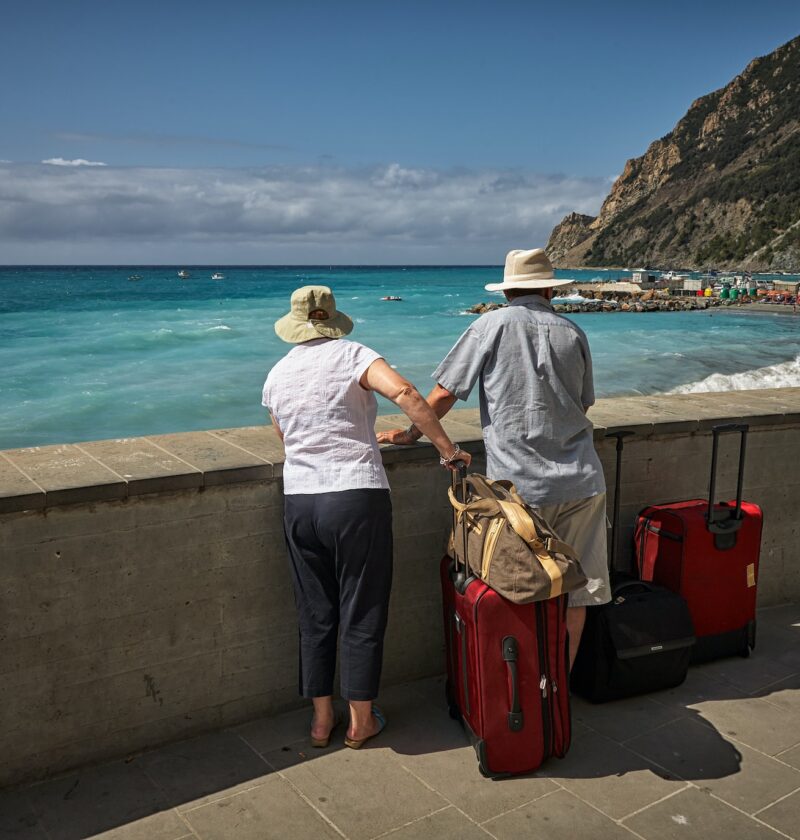As an individual who has always been attracted to the idea of escaping the harsh winter months, I’ve come to understand the allure of being a snowbird. Snowbirds, as we are often referred to, are individuals who migrate from the colder northern parts of the United States and Canada to the warmer southern locales during the winter months. The state of Florida, with its tropical climate and beautiful beaches, has long been a favored destination for us snowbirds.
When the mercury begins to plummet, and the first snowflakes start to descend, you can find us packing our bags, ready to head south where the sun continues to shine brightly. As the temperatures in our northern homes drop, our excitement for the sunny, warm days of Florida rises. The thrill of escaping the cold, shoveling snow, and dealing with icy roads is enough to make anyone yearn for the sunshine state.
However, what are some common dangers for snowbirds in Florida? While the prospect of avoiding the harsh winter weather is undoubtedly appealing, there are several risks associated with this lifestyle. It’s essential for potential snowbirds to be aware of these challenges to prepare adequately, ensuring their experience is as enjoyable as possible.
Who are Snowbirds?
“Snowbirds” is a term often used to describe retirees from the northern United States and Canada who spend the winter months in warmer southern locations. These individuals have typically retired from their careers and are in a position to split their time between two homes. This pattern of migration often starts around Thanksgiving and ends in early spring, with the snowbirds returning north as the weather begins to warm up.
As a snowbird myself, I can tell you that we are a diverse group. We come from different backgrounds, have different hobbies, and enjoy different activities. However, we share a common goal: to escape the harsh winter weather and enjoy the warmth and sunshine that Florida has to offer.
However, it’s not just about the weather. Many of us snowbirds also appreciate the sense of community that comes with this lifestyle. We form close-knit communities in our winter homes, participating in local activities, volunteering, and forming friendships that last beyond our stay in the Sunshine State.
Financial Risks for Snowbirds
One of the most significant risks for snowbirds relates to finances. Maintaining two homes can be a costly affair. There are the obvious expenses such as mortgage payments, property taxes, and utilities. But there are also less apparent costs like homeowners’ insurance, which can be higher for homes that are unoccupied for part of the year.
Moreover, living in Florida for several months a year can also lead to unexpected expenses. For instance, the cost of living in some parts of Florida can be significantly higher than in other states. This can result in higher grocery bills, increased dining out expenses, and more expensive recreational activities.
Health and Safety Risks for Snowbirds
Health and safety are essential considerations for everyone, but they take on additional significance for snowbirds. Many snowbirds are older adults, and as we age, our health needs often increase. Access to quality healthcare is a crucial factor to consider. Though Florida is known for its excellent healthcare facilities, the availability of specialized care may vary depending on your location.
Safety is another significant concern. Leaving your home unoccupied for months at a time can make it a target for burglars. It’s essential to take measures to protect your property while you’re away, like installing a security system or hiring a house sitter.
Legal Risks for Snowbirds
As a snowbird, you may also face certain legal risks. These could include issues related to taxes, estate planning, and even your voting rights. For instance, spending a significant part of the year in Florida could potentially make you a resident for tax purposes, which could have implications on your tax liabilities.
Estate planning can also become complicated, as laws regarding wills and estates can vary from state to state. It’s important to consult with a legal professional to ensure your estate planning documents are valid in both your home state and Florida.
Weather-Related Risks for Snowbirds
While the Florida weather can be delightful, it can also pose risks. The state is prone to hurricanes, and the summer months can be exceedingly hot and humid. These weather conditions can pose health risks, particularly for older adults. Moreover, severe weather can cause property damage, another potential expense for snowbirds to consider.
How to Mitigate Risks as a Snowbird in Florida
Despite these risks, don’t let them deter you from enjoying the snowbird lifestyle. There are plenty of ways to mitigate these concerns. Financially, it’s crucial to budget carefully and consider all potential costs. In terms of health and safety, ensure you have access to quality healthcare and take steps to secure your home before leaving.
Legally, consulting with a professional can help navigate any potential issues related to taxes or estate planning. And when it comes to weather, staying informed about local conditions and having a plan in place for extreme weather events can go a long way in keeping you safe.
Conclusion
Being a snowbird in Florida certainly has its perks – the warm weather, the relaxed lifestyle, the vibrant community. However, as with any lifestyle choice, it comes with its own set of risks. But with careful planning and a willingness to adapt, these risks can be managed, allowing you to enjoy the best of what being a snowbird in Florida has to offer.







